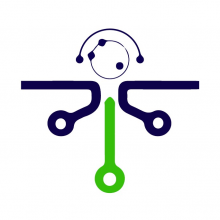
There are 19 Companies in Uganda
that provide Azure Platform Services!
Uganda’s IT Services market is predicted to reach UGX US$335.98m in 2025, with a CAGR 2025-2030 of 8.48%. The IT Outsourcing segment accounts for the vast majority of this, at around UGX US$123.71m in 2025. Other important contributors are broadcasting, data center services, cloud, IT, and BPO.
Discover Top IT Companies in Uganda specialized in Azure Platform and other related services. Find the best IT service providers for your projects.
Azure Platform, developed by Microsoft, stands as a versatile cloud computing platform known for its ability to empower organizations with a wide range of cloud-based solutions. It offers a comprehensive suite of services and tools designed to support businesses in their digital transformation journey.
Handpicked companies • No obligation to hire • 100% risk-free
Featured Companies in Uganda
This month, the following Azure Platform companies managed to provide an outstanding service and support. It's worth taking a look.
Palnode is your go-to IT partner for cutting-edge website, app, and software development solutions.
Headquarters in Rwanda, ITS Ltd provides custom software, websites, and mobile apps using the latest technology to boost your business performance.
Waanverse Labs Inc, Uganda's Leading Technology Company.
Explore Top Azure Platform Companies in Uganda
Founded in 2023, CodeToInnovate Africa empowers communities by bridging skill gaps, enhancing problem-solving, and driving digital transformation.
Dzynape,Uganda's leading digital company with passion of transforming your digital presence.
Kico Web Design is a professional web design and website development company in Kampala, Uganda
The companies Company
Loft is a design and development agency. We are at the intersection between art, technology and design.
For creative graphics, websites that sell, business cards they'll actually keep and pixel clear large format printing.
A trusted business partner to alter your digital experience.
Deepcode Innovations Limited is an ICT service provider base in Uganda aiming at providing her customers with innovative solutions to her customers
Flex your Brand
Superior in Cloud Computing, Cyber Security, Digital Forensics, Network Solutions, Systems Development, ICT Consultancy, Technology and Innovation
Sofdas is your partner in navigating the complex landscape of modern technology, ensuring your business remains competitive and secure.
GICT AFRICA TECHNOLOGIES is a leading Software development, website design and hosting company in Uganda The Mobile Apps and Software that we develop
Uganda's leading eco-conscious technology solutions and service's provider. Focus on futuristic and cutting tech based deployment's.
Developing Business Through Technology
Cost-effective Enterprise Cloud services, Managed IT services, Web solutions, Cyber Security, IT consultancy and Software development in Uganda.
we are a full, ICT service company, data analytics, system development, networking, hardware installation, maintenance, web design, and hosting.
Services:
Filter Azure Platform Companies in Uganda by Cities
Find the right tech company near you or from a specific city. Some of the best companies might be located in smaller cities.
Find more Azure Platform companies around the world
TechBehemoths is the world's most advanced and user-friendly platform to match IT Companies with real clients without hustle.
The IT Industry in Uganda: General Portrait
Uganda’s IT Services market is predicted to reach UGX US$335.98m in 2025, with a CAGR 2025-2030 of 8.48%. The IT Outsourcing segment accounts for the vast majority of this, at around UGX US$123.71m in 2025. Other important contributors are broadcasting, data center services, cloud, IT, and BPO.
Uganda’s combination of relatively stable governance, strategic location, and young and innovative population has made it an attractive destination for multinational companies. Several notable firms, such as Google, Microsoft, and SAP, have offices in Kampala, and some have based their entire African operations from these offices.
Why You Should Work With Ugandan IT Companies
Digital service providers in the cloud and BPO markets are primarily involved in the provision, rather than the development, of services, whereas Ugandan firms are more prevalent in the fintech and e-commerce markets. The physical technology required for the delivery of digital services is typically imported, and it is not clear that Uganda could produce these products more efficiently.
A key strength in the digital services market is the acceptance of mobile services. Any consumer solution entering the market would have to be mobile-compatible. Mobile healthcare services are expected to grow particularly rapidly as the sophistication of these offerings increases.
What to Pay Attention to When Working With Ugandan IT Companies And Web Agencies
On the consumer side, it is vital that any proposed digital service offering be mobile-compatible due to the prevalence of mobile usage in Uganda. Furthermore, smartphone penetration in the region is steadily increasing, thus increasing the sophistication of viable digital service offerings.
Given the acceptance of fintech by the Ugandan population, a possible route to entry in the consumer market is to acquire one of the many smaller fintech firms in the industry. This would resolve some of the primary barriers to entry, most specifically bureaucratic red tape and a lack of local knowledge.
On the corporate side, the most effective route to entry is likely through partnerships with smaller local resellers. This model is already popular in the Ugandan market. A key differentiating feature here will be how well the service adapts to the Ugandan market.
How Reliable Are Ugandan-based IT Companies?
Considered to be one of the biggest African IT hubs, Ugandan web agencies and IT companies compete only with Ethiopian ones in terms of reliability. As many foreign companies have already invested and thus developed the local IT infrastructure and industry overall, Ugandan IT companies find it easier than other neighboring countries to enter the global market and provide their services at accessible prices.
How Does the Ugandan IT Industry Relate to the Neighboring Countries?
Uganda is actively trying to establish itself as a key ICT hub in the East African region. The country appears to be making good progress in this regard, helped by having a strong connectivity infrastructure and a young, innovative population. Despite this, the country currently faces considerable political uncertainty, and issues surrounding the transparency of tenders remain a major barrier to growth.
Although Uganda’s score for the metric measuring the economic impact of ICT is not high in absolute terms, it ranks 54th in the world. This supports the conjecture that businesses, government, and consumers will be receptive to new technologies, as ICT has already had a substantial impact on the Ugandan economy.
How will ICT Impact Uganda in 2025?
Uganda has lost one of the telecom investors and operators on the market, Africell. The change has an immediate effect on the labor market and telecom industry. The reasons behind leaving Uganda are in limited possibilities the country offers to the telecom operator. For Uganda, 2022 is a challenging year in ICT, with a low internet penetration rate, tech education, and competitiveness.
In 2025, the ICT in Uganda has a goal of becoming a digitally driven society in the economic and public services sectors. The government implemented the Digital Transformation Roadmap (2024-2028) with a focus on digital agriculture, mHealth solutions, youth skilling, and scaling Uganda’s BPO sector, leading to more jobs and unlocking economic resilience.
What is Azure Platform and what are its benefits for your projects?
Azure Platform, developed by Microsoft, stands as a versatile cloud computing platform known for its ability to empower organizations with a wide range of cloud-based solutions. It offers a comprehensive suite of services and tools designed to support businesses in their digital transformation journey.
There are more than 2722 IT companies that specialize in providing Azure Platform services to businesses across the globe. These companies serve as strategic partners, helping organizations leverage Azure to achieve their goals. Notable IT service providers in this domain include Accenture, Capgemini, Infosys, and Deloitte. They offer a spectrum of services, from Azure consulting and implementation to ongoing management and support.
Azure Platform service providers employ a combination of tools and technologies to deliver effective solutions. This may include Azure DevOps for continuous integration and deployment, Azure Monitor for performance tracking, and Azure Resource Manager for resource provisioning and management. It's essential to differentiate between Azure and Azure Platform: while Azure refers to the cloud platform itself, Azure Platform encompasses the set of services, solutions, and expertise offered by IT companies to optimize Azure for specific business needs.
Azure Platform is not limited to a single service but comprises a rich ecosystem of interconnected offerings. Related services include Azure Virtual Machines for scalable computing, Azure Kubernetes Service for container orchestration, Azure AI for artificial intelligence capabilities, Azure Data Services for robust data management, and Azure Security Center for enhancing security posture.
Selecting the right IT company for Azure Platform services is a critical decision. To make an informed choice, consider factors such as the provider's experience with Azure, client references, industry expertise, and the range of services they offer. Assess their ability to align Azure solutions with your business objectives, scalability requirements, and ongoing support capabilities.
Azure Platform services find applications in a wide array of projects, including:
-
Enterprise Resource Planning (ERP) Systems: Implementing scalable ERP systems to streamline business processes.
-
E-commerce Solutions: Building and managing high-performance e-commerce websites and platforms.
-
Big Data Analytics: Leveraging Azure's data analytics tools for data-driven insights.
-
IoT Solutions: Developing IoT applications for device management and data analysis.
-
AI and Machine Learning Projects: Building intelligent applications for predictive analytics and automation.
-
Cloud Migration: Migrating on-premises infrastructure to Azure for cost savings and scalability.
-
Cybersecurity Initiatives: Strengthening security through Azure's robust security services and monitoring capabilities.
-
Hybrid Cloud Deployments: Implementing a hybrid cloud strategy for data backup, recovery, and business continuity.


















